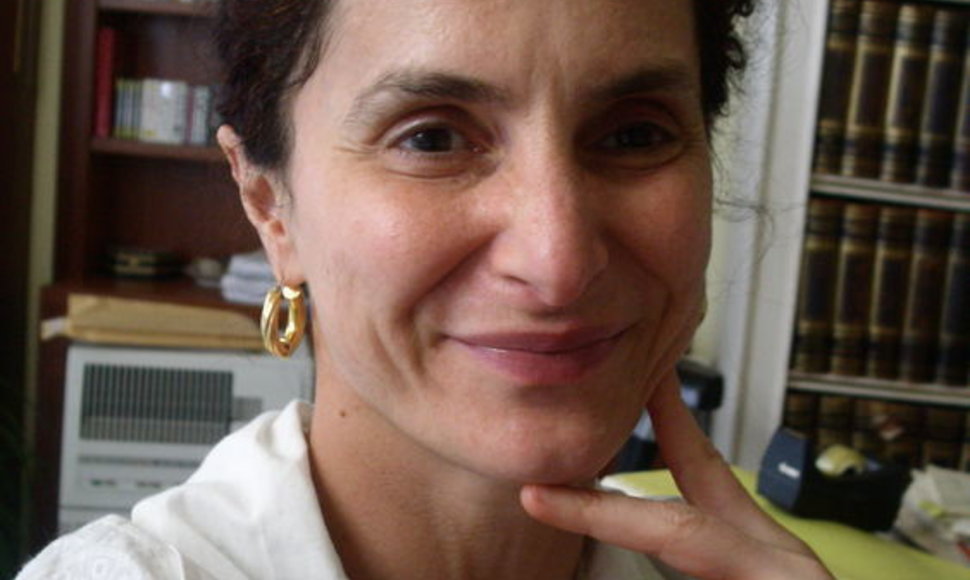Why are such things happening and when might violence in Egypt subside? 15min talks to Bruna Soravia, professor of African and Asian Islamic history at LUISS University of Rome.
– What is happening in Cairo? The Arab Spring is giving way to the Islamist Autumn?
– The current situation in Egypt is a result of long-standing antagonisms between the ousted President Mohamed Mursi and Defence Minister Abdul Fattah el-Sisi. These two statesmen represent the two most influential political forces in the country – the Muslim Brotherhood and the Supreme Council of Armed Forces. These political camps have been trying to divide up power and influence since the wake of World War Two.
– What led to breaking off the peaceful albeit tense dialogue between them? Why has Egypt entered the stage of violent force?
– The Muslim Brotherhood has begun accusing the military of corruption and scheming for a military coup. The military, in their turn, have attacked the Brotherhood over attempts to monopolize power and accused of incompetence to rein in the economic crisis. Remarks by the US Secretary of State John Kerry about the Egyptian Army as a factor of stability were also significant. Cairo interpreted the remark as an end to the “lukewarm” support showed to the Mursi regime by the US administration.
– Is there any danger that the crisis in Egypt will spread throughout the region, spilling into other North African or Middle Eastern countries?
Muslim Brotherhood deputy Azza Al Garf, who was elected to parliament, has demanded that conditions for women seeking divorce be made stricter while girls should be given the “right” to decide themselves on voluntary genital infibulation.
– I believe that Cairo will manage to keep a grip on the particularly complicated situation and avoid civil war. Possibly, the country will be shaken by one or two more powerful political earthquakes before the process will return to a rest phase. It is significant, for example, that two North African countries that also experienced violent clashes, Tunisia and Libya, have distanced themselves from the Egyptian confrontation model. What about Syria? I think that events in Syria could affect Egypt, not vice versa.
– You have been following and closely observing recent events in Egypt. The world was shocked by reports of women being raped in Cairo. Why does political confrontation take such extreme forms of violence?
– You see, there are certain complex historical issued behind that. 90 percent of married women in Egypt have experienced genital infibulation, the procedure has been outlawed only in 2008. In Egypt, a man can hit a woman just for “discipline.” Polygamy is still legal here. Women in Egypt are independent, they have a right to move around on their own, but cases of assault against them and sexual violence have been frequent. For that reason, Cairo has introduced metro train cars “just for women.” After all, Islamic, albeit rather liberal, laws have dominated in Egypt until now. Say, in neighbouring Yemen, men are still allowed to marry under-aged girls. The authorities justify the practice by saying that the Muslim Prophet married Aisha when she was six years old.
– Has anything changed in the region after the so-called Arab Spring?
– For example, the first promise made by the leader of Libya's provisional government, Mustafa Jalil, was to re-introduce polygamy. Egyptian legal norms protecting women's rights were mocked as “Suzanne's laws.” They were once introduced by the wife of former president Hosni Mubarak in an attempt to lend the country an air of a modern and liberal regime. In recent years, there have been louder voices advocating tougher control of women's freedoms and rights. For example, Muslim Brotherhood deputy Azza Al Garf, who was elected to parliament, has demanded that conditions for women seeking divorce be made stricter while girls should be given the “right” to decide themselves on voluntary genital infibulation.
– Why has mass rape of women been part of political clashes in Cairo?
– Mubarak's liberalism and subsequent uprisings in North Africa in 2011 have, in one way or another, freed people's mindsets from the grip of traditional Muslim world-view. Famous Egyptian observer Mona Eltahaway, who has authored a noteworthy essay, “Why Do They Hate Us?”, has summarized the women's situation thus: “If women realized they could resist Mubarak, that means they can resist their family members as well – their fathers, mothers, brothers.”
– And these changes in the way Arab women think have induced hate among men?
– Eltahaway speaks of a “toxic mix of culture and religion” which privileges the male society. Women who went out to the streets during the Arab Spring would often be caught, stripped naked, forcefully subjected to humiliating virginity tests. Eltahaway herself has experienced sexual aggression during 2011 protests, when she was first assaulted by protesting men and then by special police force officers.
– What do you think we can expect in Egypt – a turn towards radical Islam or a return to democratic values?
– What we see in Cairo right now is a clear identity crisis of this society. One of the reasons for it, I believe, was the initiated but unfinished process of modernizing the state. On the other hand, we can see an unduly abrupt rejection of the old cultural tradition. After all, Islam proclaimed itself a religion protecting women, not otherwise.












